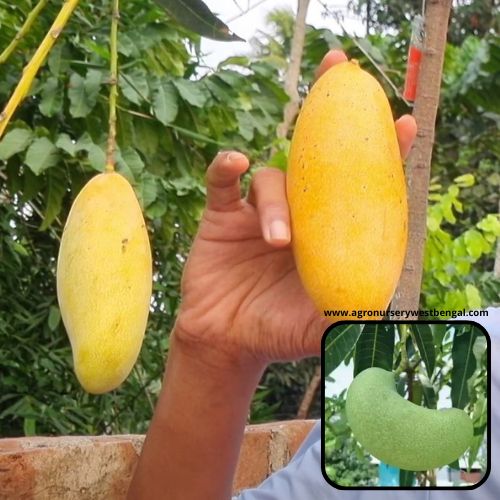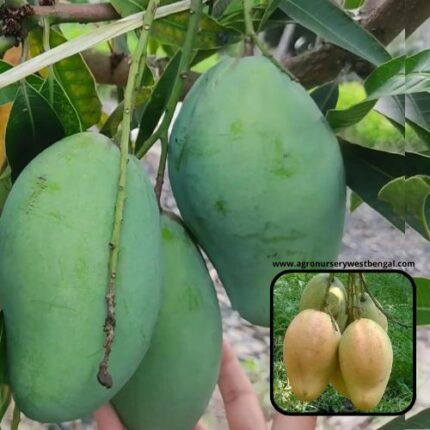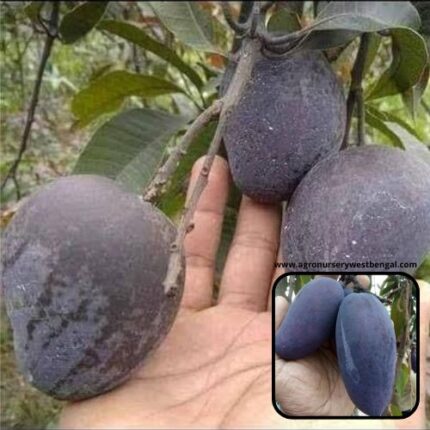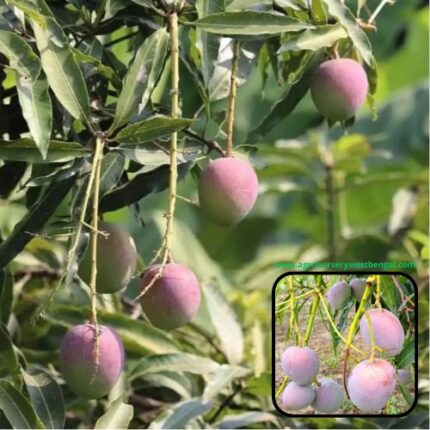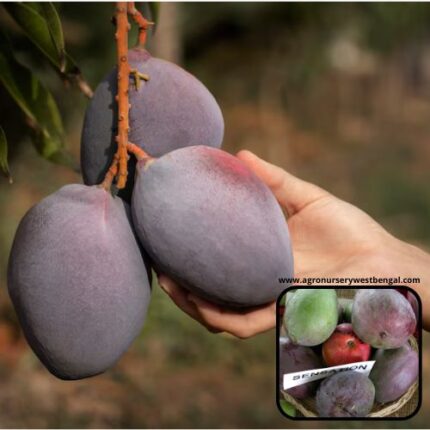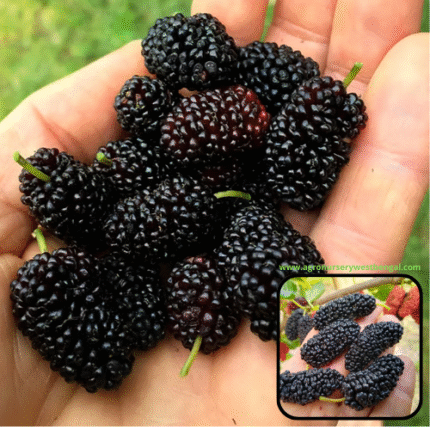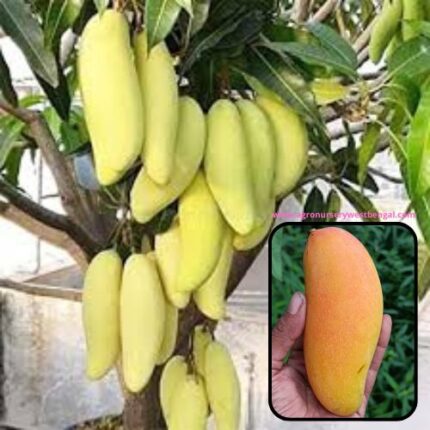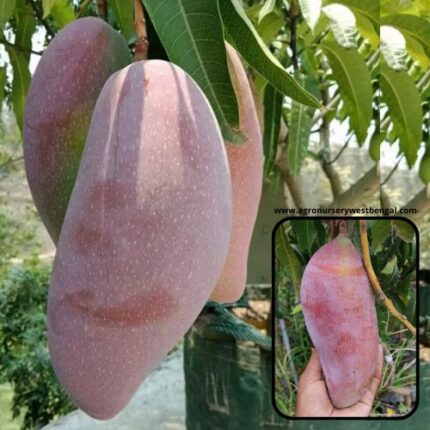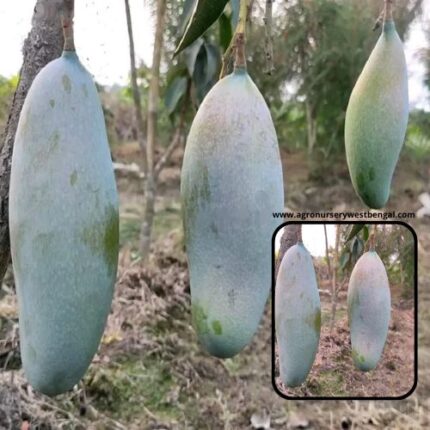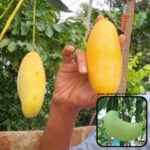
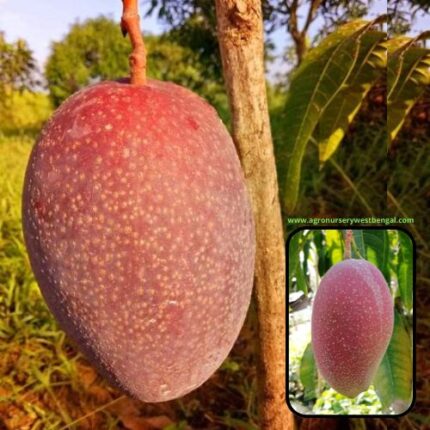
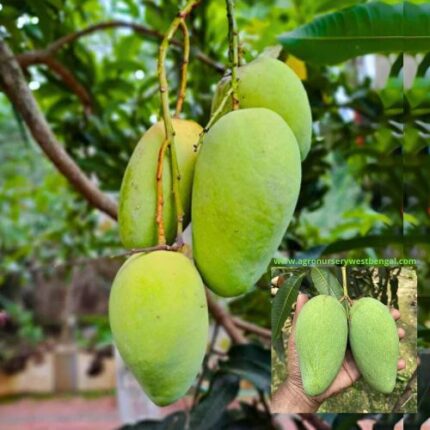
Honeydew mango plants
₹1,699 Original price was: ₹1,699.₹899Current price is: ₹899.
The “Honeydew mango” is a marketing name primarily used for the Ataulfo mango variety, particularly in the United States. It’s named “Honeydew” due to its remarkably sweet, honey-like flavor. While sometimes referred to as “Sindhri” in other regions, especially Pakistan, it’s important to note that the marketing term “Honeydew mango” almost exclusively refers to the Ataulfo.
Here’s a detailed description of the Honeydew (Ataulfo) mango:
Origin and Cultivation:
- Origin: The Ataulfo mango originated in Mexico, specifically the state of Chiapas. It was first commercially released in 1963.
- Marketing Name: The term “Honeydew mango” was coined in the United States in 2017 by the National Mango Board to promote the Ataulfo variety, as its distinct characteristics resonate with the sweetness of honeydew melons. It’s also sold under other trade names like “Champagne® mango.”
- Tree Characteristics: Ataulfo mango trees thrive in warm, tropical climates with abundant sunlight and well-drained soil. They are generally adaptable.
Fruit Characteristics:
- Size and Shape: Smaller than many other commercial mango varieties, typically weighing between 170 to 280 grams (6 to 10 ounces). It has a distinctive flattened, oval to oblong shape with a somewhat sigmoid (S-shaped) curve.
- Skin: Thin, smooth, and delicate. It ripens from green to a vibrant golden-yellow, which is a key indicator of its ripeness, unlike many other mangoes that don’t change color significantly. The skin may develop a few brown specks or scars, but these are superficial.
- Flesh (Pulp):
- Color: Deep golden yellow to orange.
- Texture: Its most celebrated feature is its completely fiberless and exceptionally smooth, buttery, and succulent consistency. It’s very aqueous and melts in the mouth.
- Seed: Contains a small, thin pit, allowing for a high flesh-to-seed ratio.
- Taste and Aroma:
- Sweetness: Renowned for its intense, honey-like sweetness, which is where it gets its “Honeydew” moniker.
- Flavor Profile: It offers a rich, tropical flavor with a lovely balance of sweetness and subtle tanginess. Many describe notes of citrus, peach, pineapple, and floral undertones, contributing to a highly fragrant and aromatic profile.
- Aroma: When ripe, it has a distinctively sweet smell around the stem.
Season and Availability:
- Honeydew (Ataulfo) mangoes are primarily available during the spring through summer months. In Mexico, they are typically sold between March and September. They have a good shelf life and are favored for their ability to be shipped long distances without damage.
Culinary Uses:
- Due to their smooth, fiberless, and sweet flesh, Honeydew mangoes are ideal for:
- Fresh Consumption: Best enjoyed fresh, either eaten on their own or sliced into fruit salads.
- Smoothies and Juices: Their creamy texture blends perfectly into drinks.
- Desserts: Excellent for sorbets, ice creams, puddings, and other sweet culinary creations.
- They are also used in various savory dishes, chutneys, and sauces.
Nutritional Value:
- Honeydew mangoes are a good source of vitamins, particularly Vitamin A and C, as well as potassium, dietary fiber, and antioxidants.
In summary, the Honeydew mango (Ataulfo) stands out for its uniquely small seed, incredibly smooth and fiberless texture, and its intense, honey-like sweetness, making it a highly sought-after and delightful tropical fruit

